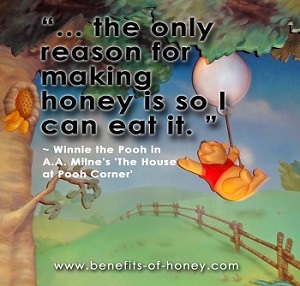colony collapse disorder
Colony Collapse Disorder – Why Bees are Disappearing
An awesome presentation on the Colony Collapse Disorder by Marla Spivak. A memorable video that will help you understand why the bees are disappearing.
Save the bees!
The Little Black Rain Cloud
What has the little black rain cloud got to do with the Colony Collapse Disorder?
I stumbled upon this very old book (1921) on beekeeping in Amazon. Its title “Bees for Pleasure and Profit: A Guide to the Manipulation of Bees, the Production of Honey” piqued my curiosity.
Oh come on, beekeepers, you don’t “manipulate bees”, do you? While speculating what its contents could be, I recalled that there had been a connection made between this piece “I’m a little black rain cloud” by Pooh (1966) and the ordeal of honeybees today – how they are treated like livestock, how they are exploited in modern mono-crop agri-enclaves, how the famous Albert Einstein visualized the devastated world without bees, and the rigorously discussed Colony Collapse Disorder (CCD) which has been linked to the use of chemicals in beekeeping.
Winnie the Pooh: Christopher Robin? I think the bees S-U-S-P-E-C-T something
Christopher Robin: Perhaps they think you’re after their honey?
Pooh’s line is prognostic, isn’t it?
Little Black Rain Cloud

I’m just a little black rain cloud
Hovering under the honey tree
I’m only a little black rain cloud
Pay no attention to little me
Ev’ryone knows that a rain cloud
Never eats honey, no, not a nip
I’m just floating around over the ground
Wondering where I will drip
Oh, ev’ryone knows that a rain cloud
Never eats honey, no, not a nip
I’m just floating around over the ground
Wondering where I will drip
Comments on Colony Collapse Disorder

From the commercial point of view the beekeepers are driven only towards profit. They don’t really care about the bees and mother nature. Actually almost all the things that we eat today has been genetically manipulated. Chickens, eggs, fruits etc. There will come a time when humans will be also be part of this manipulation.
Zynal, Singapore
5 May 2010
Ruth: It’s a lot easier to ensure the quality of honey you’re eating if you buy direct from the local beekeepers you trust and know personally. However, imported, foreign honey can be much cheaper than local honey, and this makes it extremely hard for small local beekeepers to compete with the big honey suppliers which are exporting huge volumes to different countries. Surely consumers can make a difference by buying local honey (be wary, a lot of foreign honey is now locally packed and sold as “local honey”).
Nonetheless, it’s not easy to pinpoint faults when the harsh reality of life sets in and cuts deep – beekeepers finding it ridiculous to sustain pleasures in beekeeping when confronted with dire livelihood issues, and consumers finding impossible to support relatively more expensive local honey with the meagre resources available.
